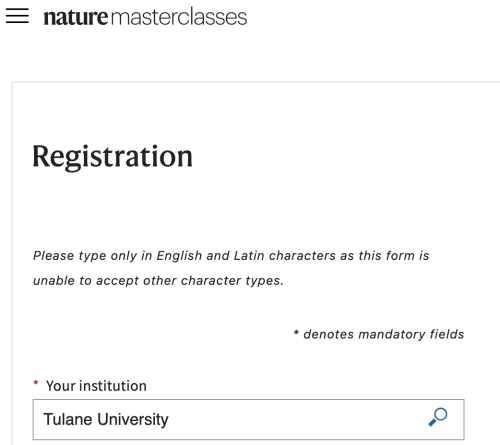
Tulane has an institutional subscription to Nature Masterclasses, which means that as a member of Tulane, you have access to all the online courses available on the Nature Masterclasses platform. The courses cover various topics, and you can get details about them and access the content by following the instructions below.
Register your Account
- Go to https://masterclasses.nature.com/register.
In the Institution list, select Tulane University.

- Enter your Tulane email address. Note: You must register with your Tulane email so Nature recognizes your access to Tulane's subscription.
- Choose a secure password, complete the remainder of the fields, and click Register.
- A confirmation email will go to your Tulane email address. Once your account is confirmed, you can begin taking classes.
Step-by-step instructions are provided in the User Guide. To learn more about Tulane's Nature Masterclasses subscription, please see this helpful Webinar.
